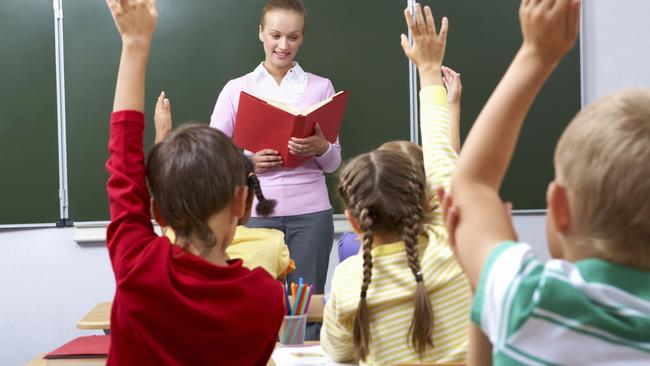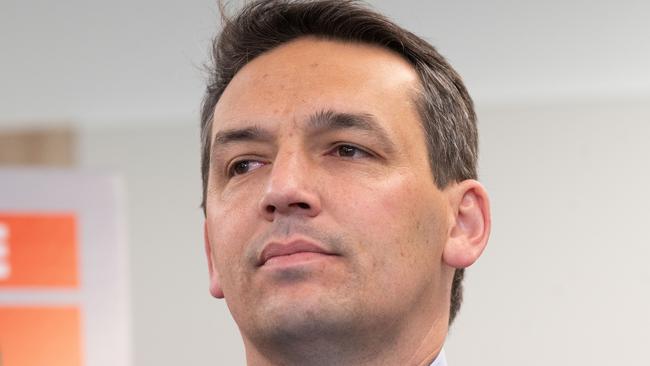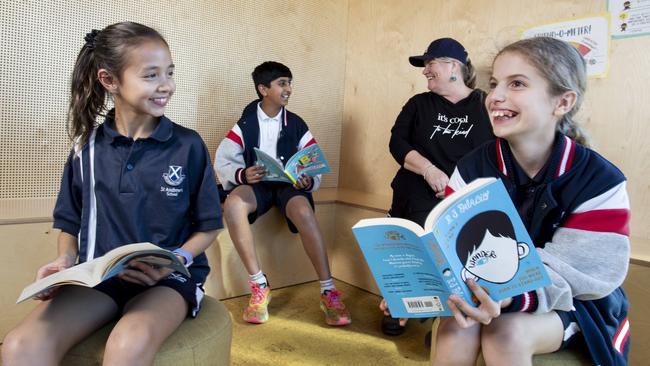An alarming number of young students are seeking mental health support
A new survey has revealed the staggering extent of the mental health crisis plaguing our kids with a large portion of young students seeking mental health support.
SA News
Don't miss out on the headlines from SA News. Followed categories will be added to My News.
A third of primary school students and almost half of high school students have sought, or are planning to start, treatment for mental health concerns, worrying new survey results reveal.
Stress and anxiety are the most common reasons, followed by sadness and depression.
A national survey of more than 2100 parents and carers of young people has also found “deeply concerning” rates of self-harm among teenagers.
Experts say the findings must prompt school leaders to ensure access to mental health support on campus and conduct regular “check ins” with students.
According to the latest School TV Wellbeing Barometer about 28 per cent of primary and 35 per cent of secondary students feel stressed or anxious frequently or constantly.
When children who sometimes experience those feelings are included the rates rise to above 80 per cent.

This is a strong driver of demand for mental health services, with 29 per cent of young children and 33 per cent of teens either in mental health treatment, awaiting an appointment or planning to contact a provider.
A further 8 per cent of primary pupils and 16 per cent of teens had received treatment in the past.
“Without effective intervention and support, chronic stress and anxiety can have detrimental effects on students’ mental and physical health, as well as their academic performance,” the report authors say.
“Early intervention can make a profound difference in the lives of students who may be struggling with mental health issues.”

The report also found:
ALMOST 10 per cent of primary and 18 per cent of secondary students felt sad or depressed constantly or frequently.
THREE in 10 young children and teens had experienced some form of bullying more than once.
TWO in 10 adolescents had displayed “school refusal behaviours” more than once.
ONE in 7 adolescents reported self-harming, which the report described as “an alarming and deeply concerning finding”.
The report’s authors make recommendations including:
ENSURING trained counsellors are available on campus to provide immediate support to students in crisis.
CLEARLY defining the steps to take when a student is in “immediate distress”.
CREATING a private and safe space for students to discuss concerns.
HOLDING regular “check-ins” between students and school counsellors.
TEACHING students about common mental health issues and how to seek help.
LAUNCHING peer mentoring programs which empower older students to provide emotional support to others.
Education Minister Blair Boyer said the “wellbeing of our students is something as minister, I feel very strongly about, and something that must have as much importance as academic learning”.
The SA government has committed $50m to placing wellbeing workers in 65 schools and last year banned mobile phones in public schools.
In another 41 schools educators are delivering a new Positive Behaviour for Learning framework.
But at St Andrew’s School in Walkerville, leaders are tackling wellbeing head-on with a new program designed to equip students with emotional skills to navigate relationship issues and feel a sense of belonging.
Student wellbeing is being improved by the program URStrong, launched at the school this year, which teaches children friendship skills.

URStrong encourages children to stand up for themselves and identify if conflict between friends is “mean on purpose” or a blip in the friendship.
The program was launched following the release of data from the Education Department’s annual wellbeing and engagement collection, which polls students on non-academic factors relevant to learning.
Director of wellbeing at St Andrew’s School Donna Longden said the program has made “a massive difference”.
“I had two Year 6 students who have been in conflict saying they ‘need to talk it out’,” Ms Longden said.
“They’ve come themselves and said ‘we need to fix this’.”
The school then called a meeting between the pair and “went through the reconciliation process”.
More Coverage
Originally published as An alarming number of young students are seeking mental health support




